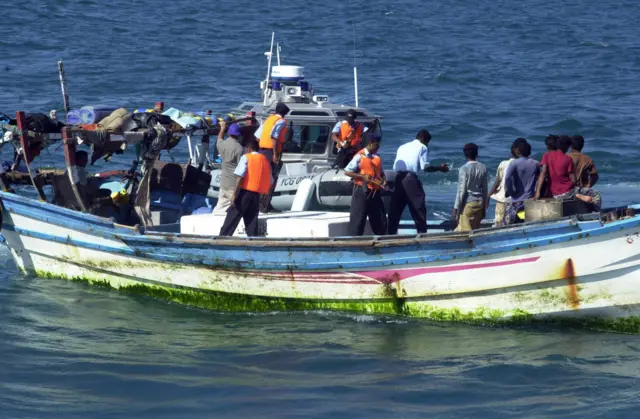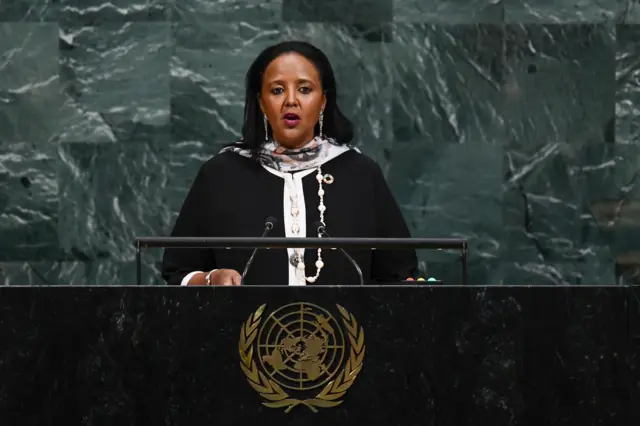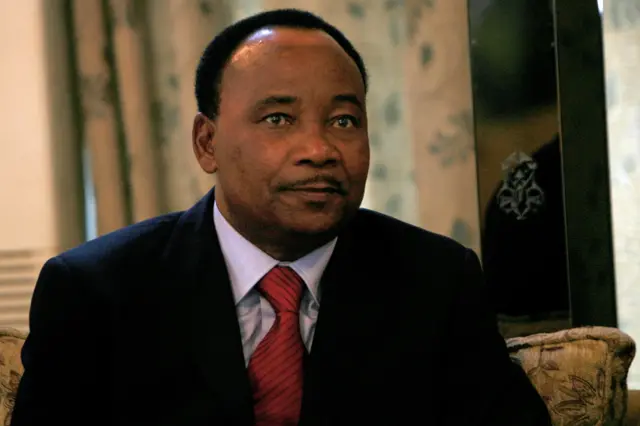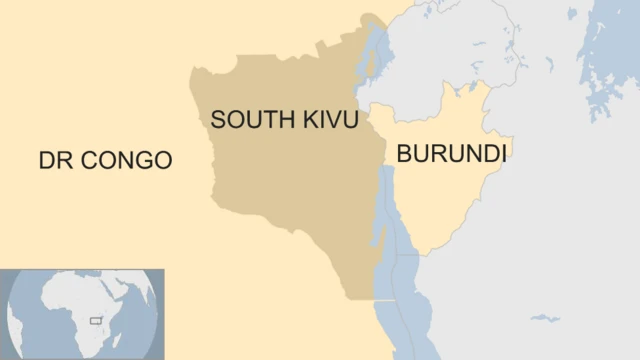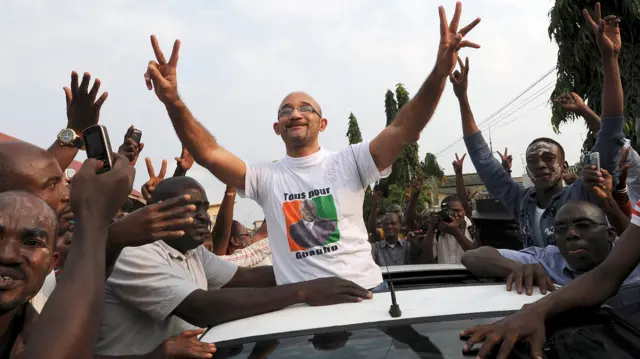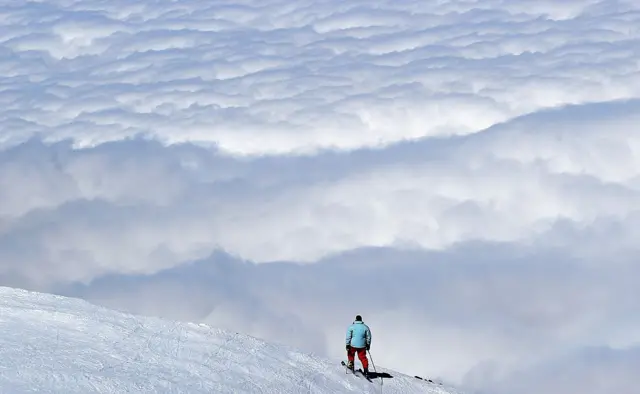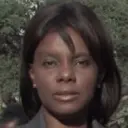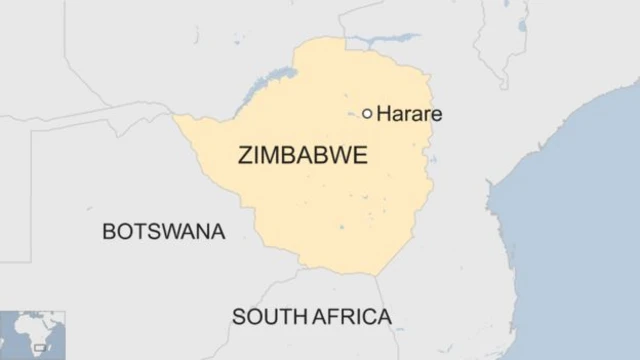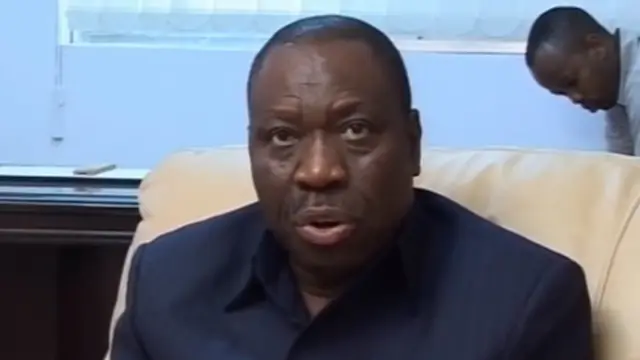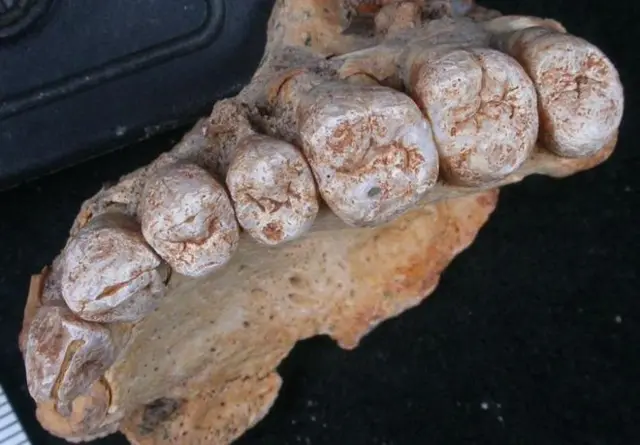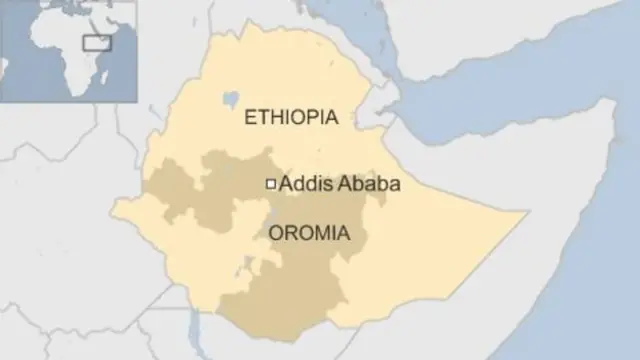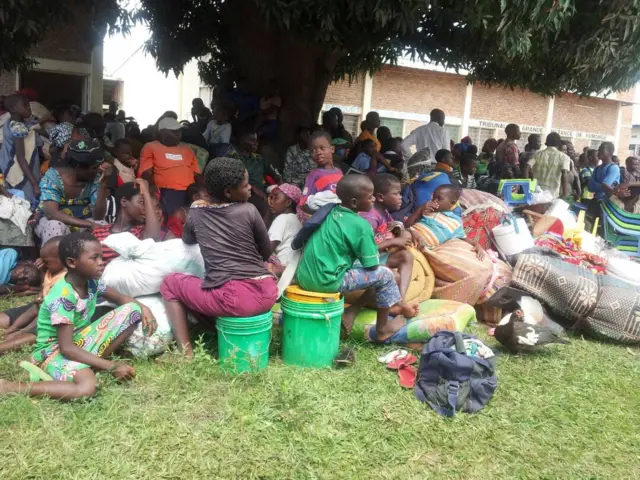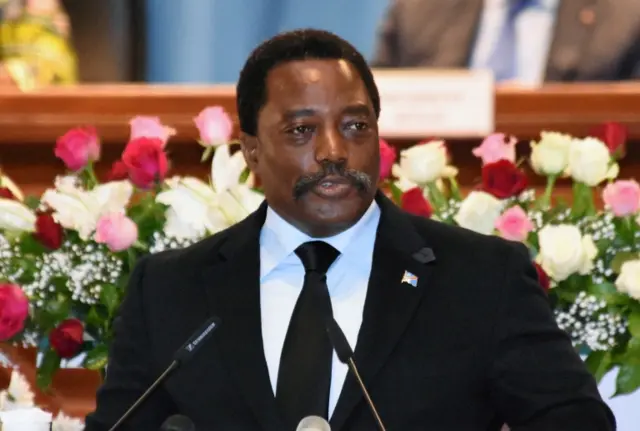Scroll down for Friday's storiespublished at 17:30 GMT 26 January 2018
We'll be back next week
That's all from BBC Africa Live this week. Keep up-to-date with what's happening across the continent by listening to the Africa Today podcast or check the BBC News website.
A reminder of today's wise words:
Quote MessageA poor man does not get tired."
A Teso proverb sent by Gladys Ato in Uganda
Click here and scroll to the bottom to send us your African proverbs.
And we leave you with this photo taken at last week's Timket - or Epiphany - festival in Ethiopia, which commemorates the baptism of Jesus in the River Jordan. It's one of our favourite shots from our gallery of the week.
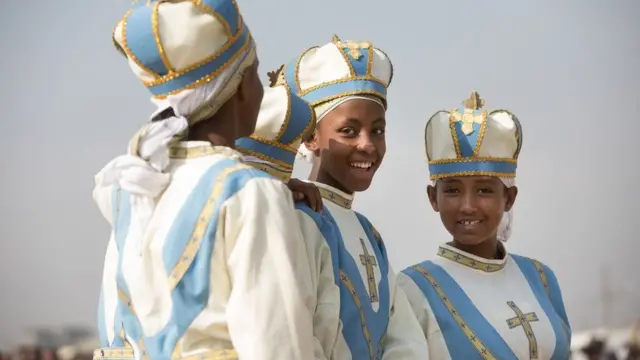 Image source, AFP
Image source, AFP